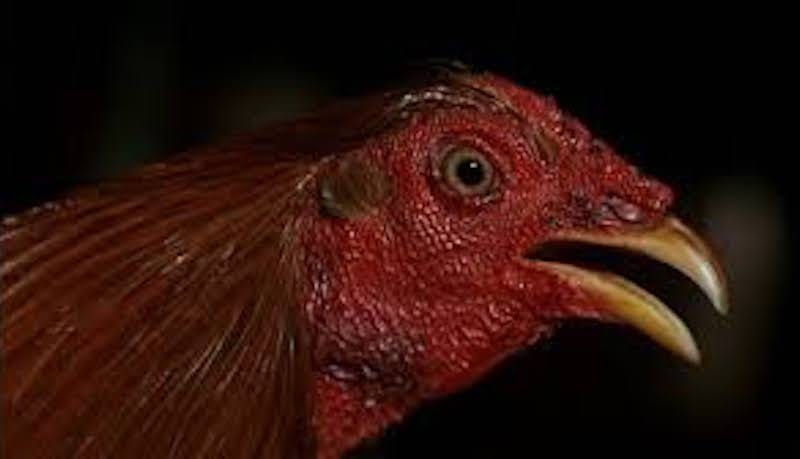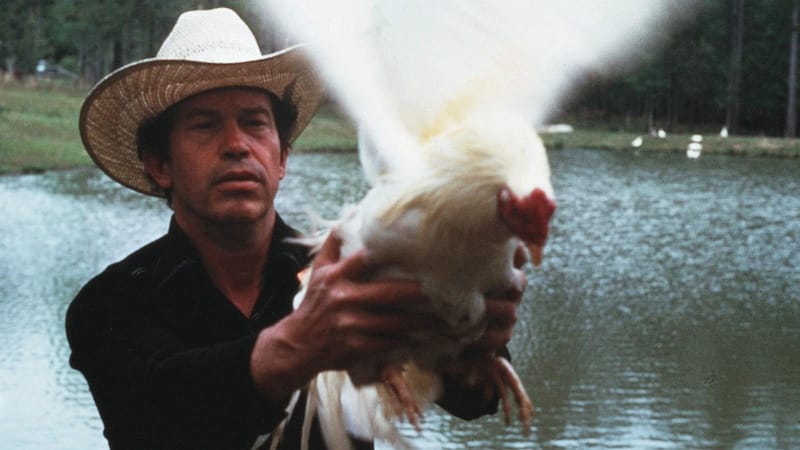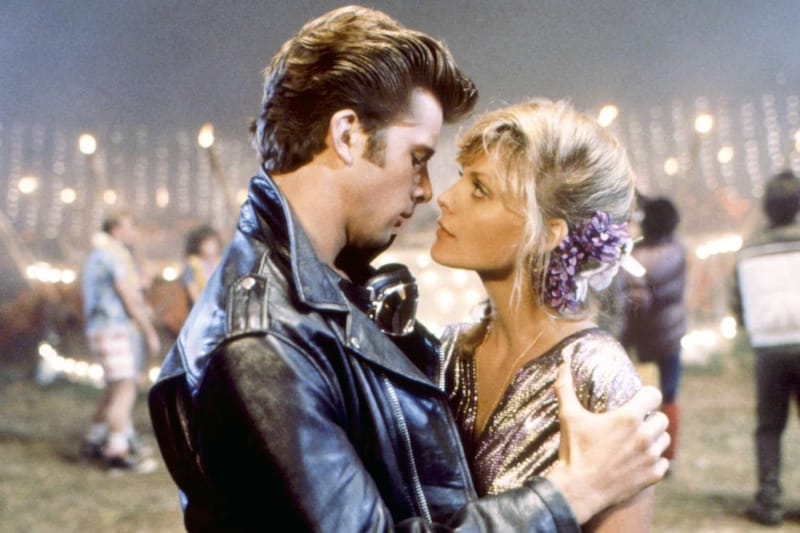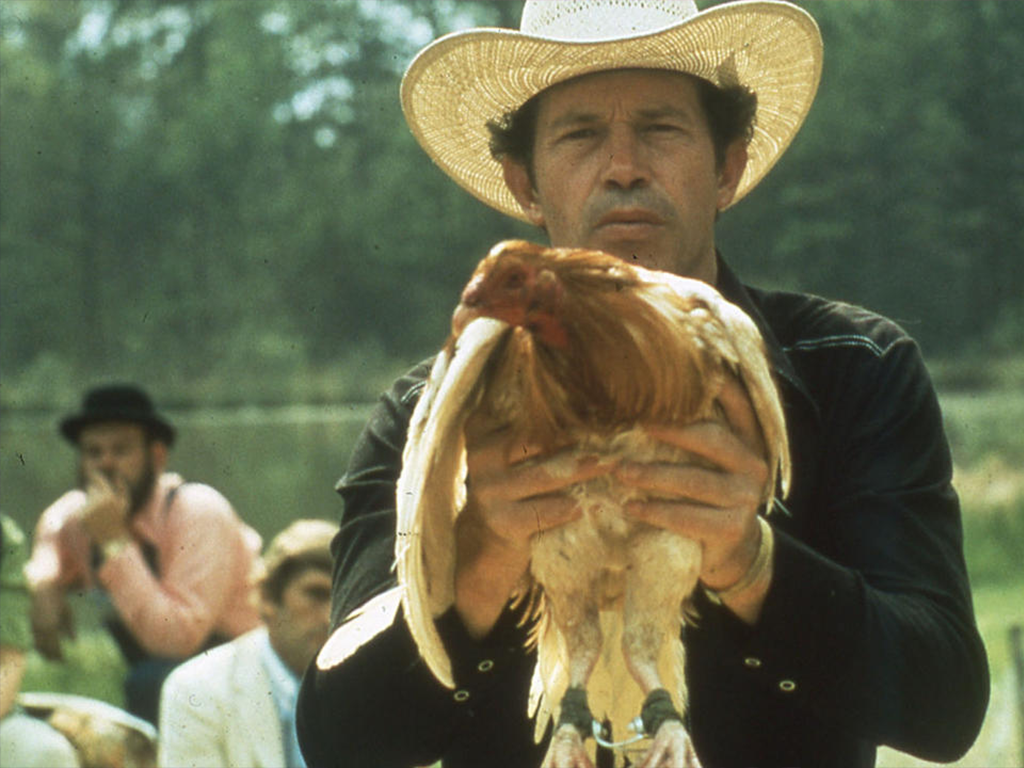If you know me IRL, you're probably aware that I have pretty bad insomnia that I've only recently gotten under control (with the help of Purple Urkle and a relocation to the Midwest). When I can't sleep, I usually either a) try to work on something so I feel productive or b) Google a bunch of random shit on my phone and fall into an Internet black hole. During one of these late night browsing sessions, I came across this list on MUBI and was so intrigued that I immediately purchased the book that inspired it
Kier-La Janisse's "House of Psychotic Women" (2012) is a seamless combination of memoir and film analysis and essentially became my bible for the better part of two years. When I first picked it up, I hadn't even heard of 70% of the films mentioned and found Janisse's perspective unlike anything else I had come across. After working my way through this book, I moved on to her other fantastic projects, like "Lost Girls - The Phantasmagorical Cinema of Jean Rollin" (2017) and "Yuletide Terror: Christmas Horror on Film and Television" (2017). When I found out that Janisse was coming out with a new book called "Cockfight," I jumped at the chance to interview her about it.

According to the Indiegogo page, the new book "explores the intersection of Southern Gothic, ritual masculinity and second wave feminism" in Monte Hellman's 1974 film "Cockfighter." I hadn't actually seen the film, so I streamed it on Amazon Prime the night before I spoke with Janisse. I had low expectations since it's about cockfighting and I dislike onscreen animal violence but goddamn, it was a pleasant surprise! The cinematography (c/o Néstor Almendros) is incredible and Warren Oates is undeniably charismatic. The rest of the cast is likewise insane... Young Ed Begley Jr. and Harry Dean Stanton? Yes, please.
To give a brief synopsis, "Cockfighter" is about a man named Frank Mansfield (Oates), an obsessive cocker who is known for getting into trouble due to his big mouth. After losing his bird in a stupid bet the night before an important fight, he takes a vow of silence that he won't break until he wins the Cockfighter of the Year award (which is pictured in the header image of this post). It's based on a novel with the same name by Charles Willeford.
Janisse was nice enough to talk to me on the phone for almost an hour about "Cockfighter" the movie, "Cockfight" the book, and whether or not she ever watches meaningless garbage TV like "The Real Housewives." Here are some selected excerpts from our conversation.
Interview with Kier-La Janisse
Woman in Revolt: What was the impetus for Spectacular Optical (Janisse's small-press publishing company) and how do you decide what to publish? How does the process work with a book like "Cockfight"?
Kier-La Janisse: The "Cockfight" book is a slightly different scenario than the other books. When I started Spectacular Optical, it was to publish the books of other writers and predominantly, we were doing that through anthology projects.
Spectacular Optical has existed as a website since probably 2010 or 2011. In 2014, I published the first book "Kid Power," an anthology with 15-20 different writers, looking at images of child empowerment in film. The next one was "Satanic Panic" (2016), which we had about 20 writers working on, about different pop cultural aspects of the 80s satanic hysteria and looking at it through different types of media and merchandise. The third one was a book that was proposed to me. Samm Deighan put together this book called "Lost Girls" about the films of the French filmmaker Jean Rollin... and that was all by women, so there were like 15 different women writing for it. "Yuletide Terror," our Christmas horror book that just came out, was probably the biggest roster. I think we had 30 different writers working on it.
So generally, Spectacular Optical was something I started because I knew a lot of writers that work in horror/cult/exploitation that were always struggling to make a living and to have their work recognized on the Internet. They'll write these great articles, but the way the Internet works... everything is just sort of positioned as disposable and isn't taken as seriously as things that are in print. It was a way to give some of those writers a way to appear in print and also, to get paid.
The company was never meant to be a vanity press, it was never supposed to be for me to publish my own books. But there are a couple of different reasons why I'm printing "Cockfight" through my company. One is that a lot of these companies that do monographs, like single film monographs, were not interested in a book about that particular film. Even the ones that were interested don't pay that much. You'll get maybe $1,000 for writing an entire book.
That sucks. $1,000 for all the work that goes into writing a book?
Yeah. I think that's why they tend to be around 100 pages or whatever. A lot of academic writers do those monographs because they need to be writing constantly. It's a problem I have with the publishing world, the way it exploits academic writers. It makes them constantly publish but only certain publishers are recognized by academic institutions. An academic writer is compelled to write for free for somebody who is considered an academic publisher but can't write for me, even though I will pay them, because I'm not considered an academic publisher. It's sort of like... this system that exists.
And that was another thing I was fighting against... just wanting to pay people because so many writers are used to writing for free and it drives me nuts. They don't get paid a ton working for me, but they still get paid something.
Writing an entire book about a film and getting paid only $1,000 for it is pretty normal. And so I just thought... Well, since nobody seems that excited about this particular film and it's one of my favorite films and I know how to make books, I'll probably have more control over how it looks and make more money if I do it myself. So I made an exception for a couple of reasons and decided to publish it.
With the anthology books, there's a certain timeline — everybody has to hand in their pieces by a certain time, we go through edits, then it goes into layout. There's a pretty easy to follow timeline for those books and it's easy to keep them on track. When you're writing the book yourself, it's a lot harder. I'm the only person I answer to, so it just takes me forever. With the anthology books, everyone's only responsible for writing one chapter. They hand them in at the same time and the book is ready. With a single author, you have to wait for them to go through that entire process themselves. Having the anthology books is definitely a way of keeping up our productivity and finding new writers.
How do you decide on specific topics?
My co-editor Paul Corupe and myself will just sort of brainstorm ideas. The topics we pick tend not to be super popular. The Christmas horror one is probably the most mainstream subject we've done. I don't like to do things that other publishers would jump on. I would rather do something they're not as interested in but is really interesting to me because I'm not that financially motivated personally. I don't make the books in huge runs or anything. We normally make 1,000 copies and I can move them myself at festivals and things like that. I look at it as a little boutique label.
I have a friend who is a noise artist and is constantly releasing all of these limited edition tapes and records and stuff. He can make these completely obscure things and sell them because he knows his audience, he knows they're going to buy them. And he also doesn't make a ton of them, so they're all sort of collectible. I wanted to look at the books that way, too. I don't re-print them and they're printed in very limited runs. They're all basically sold directly from me to the people who buy them.
The only thing we'll consider sometimes in terms of subjects we pick is that if we have one that's really niche, we have to follow it up with something that's going to hit a bit more people. We need to keep the profile of the company up so that people trust us and want to buy from us regularly.
Our last book was the Christmas horror one, now we're doing "Cockfight," and the next book is up in the air. It depends on what comes together first... we have two more projects on the go. One is about the films directed by David Carradine and the other is an anthology book about the films of Robert Downey Sr. I was looking at that the other day and thinking it was maybe too much manliness in a row and that we need something else to mix it up and balance out the roster.
I definitely get the sense that you focus on what you really love and not what might be appealing to a mainstream audience, which is why I'm always so excited for your new projects.
It's never been my priority to make something commercially successful or palatable. It's sort of my curse also, you know? I like to be proud of the stuff that I do and at the end of the day... I know people who publish books that are sort of... they're like, 'Well, I don't really care that much about it, but it will sell.' And I'm like... 'yeah, but you still have to pay for that.' You still have to pay to make it, to spend 6 months of your year working on it. It's not like it's just free and you get to make money on it. There's still so much work that goes into something you don't really care about. But for some people, it really doesn't bother them to do that and I would never judge that. It's just not how I am. I tend to look at it like a waste of my time and money to do something that I'm not totally jazzed about.
I'm right there with you. I know you talk about it a little bit in the Indiegogo campaign, but why this particular Monte Hellman movie? Aside from "Cockfighter," I've only seen "The Shooting" (1966) and "Two-Lane Blacktop" (1971), so I don't really have a good sense of his body of work.
I like "Two-Lane Blacktop" a lot, but I feel like it's a film that everyone likes. It's kind of like the more palatable version of "Cockfighter" in a way... the male competition, the obsessiveness within a subculture and the minutiae of it. The idea of these recognizable rock musicians racing cars down the highway is a more appealing type of obsession story than one about a group of men who are obsessed with cockfighting, but a lot of the same issues come up in both movies.

A big part of it for me was that Warren Oates is the lead. I love Warren Oates. He plays a great character in "Two-Lane Blacktop," but he's not the lead character. The 3 main characters in that movie are all horrible actors. That movie gets by because of Monte Hellman and his directing... he carried that movie through with a trio of wooden actors. Warren Oates is the spark in that movie. But then you go to "Cockfighter" and you look at the cast - Warren Oates, Harry Dean Stanton, Ed Begley Jr., Richard B. Shull, Steve Railsback — all these amazing actors. The movie to me has so much more life than "Two-Lane Blacktop" because of these amazing performances and screen personalities.
Other films of Monte's are on the Criterion Collection and have been canonized already. But even he doesn't like "Cockfighter." He thinks it's his worst movie, but it's hands down my favorite of what I've seen so far.
There's so much in the movie about work ethic that I really related to. I loved the idea that the main character decides he wasn't going to talk anymore and that everyone has to just adapt. When I was a teenager, I always wanted to run away to a monastery so that I didn't have to talk anymore. So I love this story of a guy who just decides he's not going to talk anymore. It's a protest, but the protest is really just against himself.
And I love the cockfighting... the way it was shot. I thought it was so weird, the way the roosters look when they're fighting. The way they stand up like a lion's mane. It's such a strange spectacle.
When writing, did you feel the need to address the more controversial aspects of the film, like the animal cruelty and more with your work on horror, misogyny? Do you worry about backlash?
I don't so much worry about or think there's going to be backlash, but I do address it because I think people are genuinely curious. When I was writing "House of Psychotic Women," people would always ask me if I thought horror films were sexist. People were curious because it was assumed that of course I had thought about these things. I assumed that people were going to expect me to address it in some way... it goes with the territory.
It's the same with cockfighting in this book. Of course animal cruelty is addressed, but it's addressed in the ways that I talk about the justifications and the excuses that people give for it. The main thing that cockfighters always say in their defense is that cockfighting chickens are treated much better than chickens that are used for food. Which is true. But that doesn't mean they're not both wrong! As a writer, I don't take a judgmental position on it.
You actually attended cockfights while writing this book. Is there anything particularly interesting that you learned from that experience?
I guess the most surprising thing was that class distinctions didn't exist as much in the cockpit. It was a social equalizer. There are people with a ton of money betting and then people who were obviously betting their last money. All of these people are friends and talking... It was an interesting mix. It's also a major family event. There are a lot of kids that attend fights.
I think the thing I found that most defies stereotypes is that there are a lot of cockfighting manuals that go back hundreds of years... from the 16th century and stuff... that are still in print. They're being printed and sold to somebody! These people who are often looked at as illiterate hicks are reading books from the 16th century, studying the pastime of kings.
What's your interpretation of the end of the movie? Mary Elizabeth (Patricia Pearcy) reads Frank the riot act and says she wants nothing to do with him but after she leaves, he tells Omar (Shull) that she loves him.
I often have to think about that because I still can't totally decide. Roger Corman (the producer) apparently always hated that line because he thought it was too ambiguous and like... what the hell does that even mean? I just always thought that it was part of his delusion about what he does. I look at that last cockfight and him winning the medal and everything as though he's a fool that gets to be king for a day.
I think there's a lot of delusion, even with real cockfighters I've met. There's a lot of self-mythologizing and a false sense of nobility, which Frank Mansfield definitely has. He looks at things like a game or a challenge all the time. I thought if the movie continued, he'd start visiting her again, trying to convince her to change her mind.
It's interesting because the book has a slightly different ending. The book has another female character in it that's very important to the story but was taken out of the script due to time constraints. Frank's relationship with Mary Elizabeth is a bit different because it's constantly being compared to his relationship with this other woman. He sort of pits them against each other. In a way, he treats them like they're birds in a fight. He invites them both to the tournament at the end to see which of them will make it through.
So in the book, when Mary Elizabeth leaves him, he's happy because the decision has been made for him. The other girl finds the match exciting, so he sees her as the winner. It's all just a game. Frank is also a more despicable character in the book.
On a more selfish, unrelated to "Cockfighter" note, do you have any horror movie recommendations from the past 5-6 years? I've been working my way through the "House of Psychotic Women" index and need an update.
There's a movie from a few years ago that I really loved by Sophia Takal called "Always Shine" (2016). I mean, if you're talking about those types of movies, women going crazy or two women going crazy together in a house in the woods or something... definitely "Always Shine." There's one that played at Fantastic Fest last year called "Hagazussa" (Feigelfeld, 2017). It's an Austrian student film about a woman who is accused of being a witch. That movie was really great. I liked "Thoroughbreds" (Finley, 2017) from last year. It's about two girls who are friends and one of them is a sociopath. The one who's not a sociopath tries to get her sociopath friend to marry her stepfather because she's like, 'You don't have any feelings!' I watch movies every day, but I can never answer this question properly. I like a lot of things. I'm a pretty easy to please viewer and can find something I like in most movies.
Since the book came out, there have been way more movies that would be included. We're going to do a second edition in a few years.
Do you like any shitty movies or TV shows that are completely different than the things you've written about? I'm thinking of like... rom coms.
Let's see... I'm sure there is. I often watch romantic comedies when I'm on the plane. I get embarrassed really easily about people seeing stuff I'm watching. So if I'm sitting next to an old lady and watching a sex scene, I get really self conscious about it, so I end up watching really innocuous movies on the plane.
I watched "13 Reasons Why" and "Glow" but I think those are pretty expected.
You don't watch any of the BRAVO reality TV shows?
No, I haven't watched any of those.
That's probably for the best.
Another book I'm working on this year is about "Grease 2" (Birch, 1982), which I think is pretty different from what I've done in the past.

Kier-La Janisse is a true pleasure. Her film knowledge is staggering, her writing is impeccable, and I'll basically read everything that she publishes, even books on movies I haven't seen and ones I don't like.





